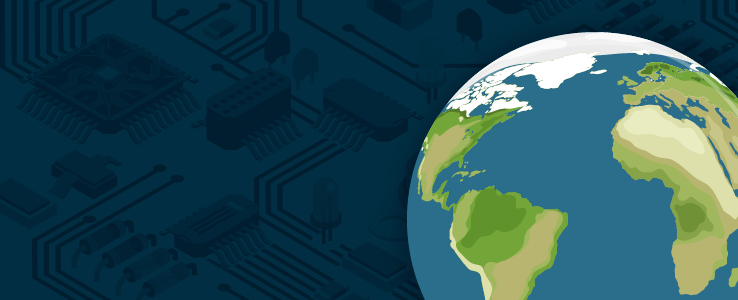By harnessing the power of data analytics, educational institutions are undergoing a remarkable transformation. Pruthvi Tatikonda explores how data-driven strategies are reshaping learning environments, enabling personalized education , real-time student monitoring, and curriculum optimization. His insights provide a roadmap for institutions looking to integrate advanced analytics into their educational models.
Adaptive learning systems have changed the face of education. These intelligent systems are designed to analyze patterns with respect to student behavior, engagement levels, and performance metrics in creating individualized pathways for learning. These systems normally adopt machine learning algorithms to dynamically modify content based on stimuli and student responses to ensure that learners receive the best possible instructional materials catered to their needs.

Traditional education methods rely on periodic assessments to gauge student performance. However, real-time monitoring systems now offer continuous feedback, allowing educators to intervene at critical moments. These systems utilize data collection mechanisms that track attendance, participation, and task completion rates, providing educators with a comprehensive view of student engagement and progress.
Such insights enable timely interventions to support struggling learners and enhance overall academic performance. In fact, it is very important that academic problems be identified very early in the life of a student for his or her success. Predictive analytics is actually the use of cutting-edge algorithms pointing at the identification of students in danger of falling behind.
Analyzing assignment completion rates, engagement tendency, and attendance records allows proactive action in implementing targeted support strategies. This data-driven process, quite literally, lowers dropout rates and brings each student to consideration for all that is necessary to excel in studies. Such systems of early warning usually take into account also data on student's performance in the past to come up with comprehensive risk profiles that go beyond single measures.
It is capable of giving continuous improvements to the intervention based on feedback loops, which can even personalize support for certain learning barriers. Adding these social-emotional indicators together with the academic performance data provides a more complete picture of wellbeing. In other words, this approach brings reactive remedy into a system that converts it into preventive strategies to invulnerability because it transforms educational environments into ones where timely evidence-based interventions become commonplace rather than exceptional responses to crises in the studies.
Curriculum development is no longer a static process. With data-driven insights, educational institutions can continuously refine their teaching methodologies. By evaluating student performance data, educators can identify which topics require more focus and which teaching strategies yield the best results.
This iterative approach ensures that curricula remain relevant, effective, and aligned with student needs. Additionally, technology plays a crucial role in modern curriculum development. Learning management systems and AI-driven analytics help track student engagement, providing real-time feedback to educators.
This allows for personalized learning experiences, catering to diverse learning styles. By integrating adaptive learning technologies, institutions can create dynamic curricula that evolve to meet the demands of an ever-changing educational landscape. From pattern detection to learning path optimization, sophisticated algorithms are at the heart of modern educational technology.
Clustering techniques analyze student interactions to detect learning trends, while predictive models assess performance trajectories. Additionally, recommendation systems employ collaborative filtering to suggest personalized learning materials, enhancing the educational experience for each student. Natural language processing capabilities enable intelligent tutoring systems to assess written responses with increasing accuracy, providing targeted feedback on conceptual understanding.
Machine learning models continuously refine course content delivery based on engagement metrics and assessment outcomes. Deep learning networks can identify struggling students before traditional warning signs appear, enabling proactive intervention. Reinforcement learning algorithms optimize question sequencing to maximize knowledge retention while minimizing frustration.
These technologies work symbiotically to create adaptive learning environments that respond dynamically to individual student needs, learning preferences, and knowledge gaps in real-time. In overcoming the challenges pertaining to data-driven education, the institutions will have to invest in robust frameworks of data governance that clearly know about data ownership, rights for usage, and retention policy. Besides, training programs for faculty should stress understanding the data and developing skills for reading it to get maximum analytical benefits.
These cross-departmental collaboration teams can act as facilitators in integrating the platform while also identifying potential incompatibility issues beforehand. Stakeholder feedback mechanisms should be regularly instituted to ensure system responsiveness to the evolving educational requirements. Resource allocation for technical support and system maintenance should be an important consideration for sustainability.
Ultimately, institutions will need to give weight to the drafting of ethical guidelines that will promote responsible data usage during the actualization of predictive analytics and personalized learning algorithms, against the interests of innovation. In conclusion, with educational institutions going deeper into data analytics, the delivery of learning is becoming ever more dynamic and student-centered. By incorporating elements of real-time monitoring, predictive analytics, and adaptive learning frameworks, educational institutions could deliver more effective and personalized learning experiences: Pruthvi Tatikonda further highlights how data-driven education can be the formative phase that offers a roadmap for the next generation of learning systems.
.
















